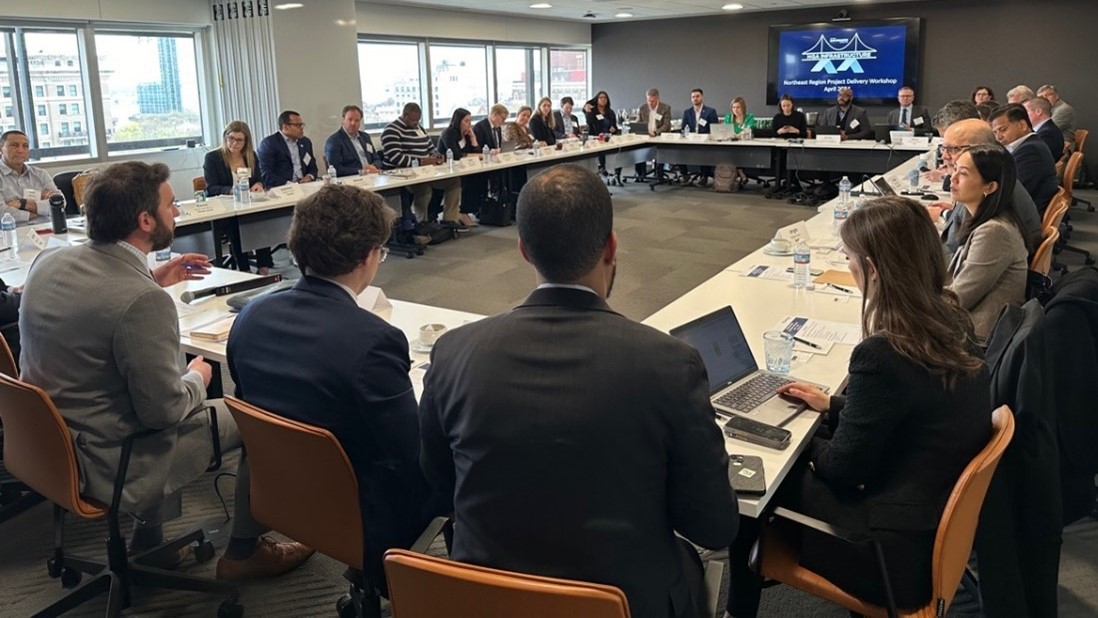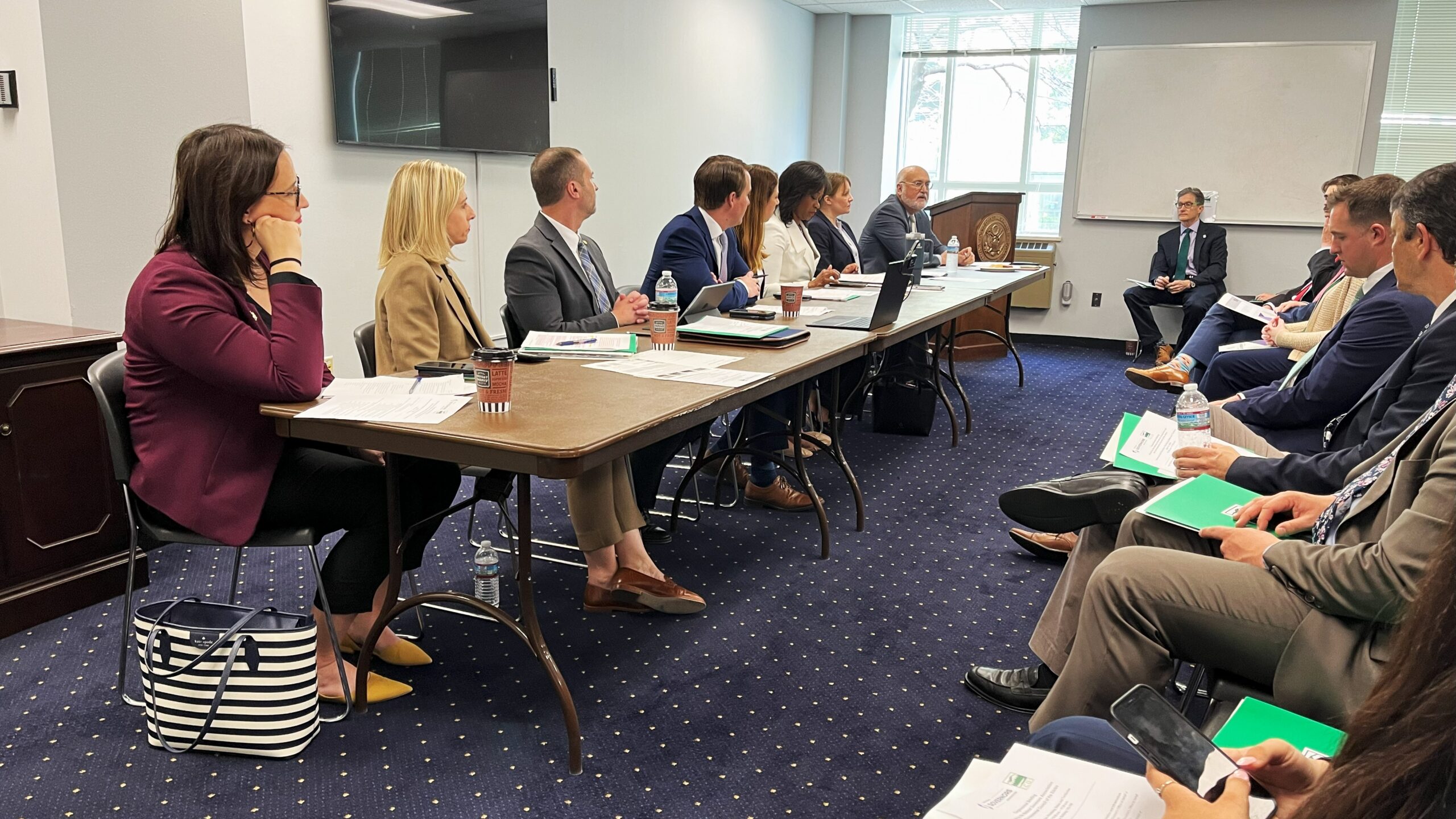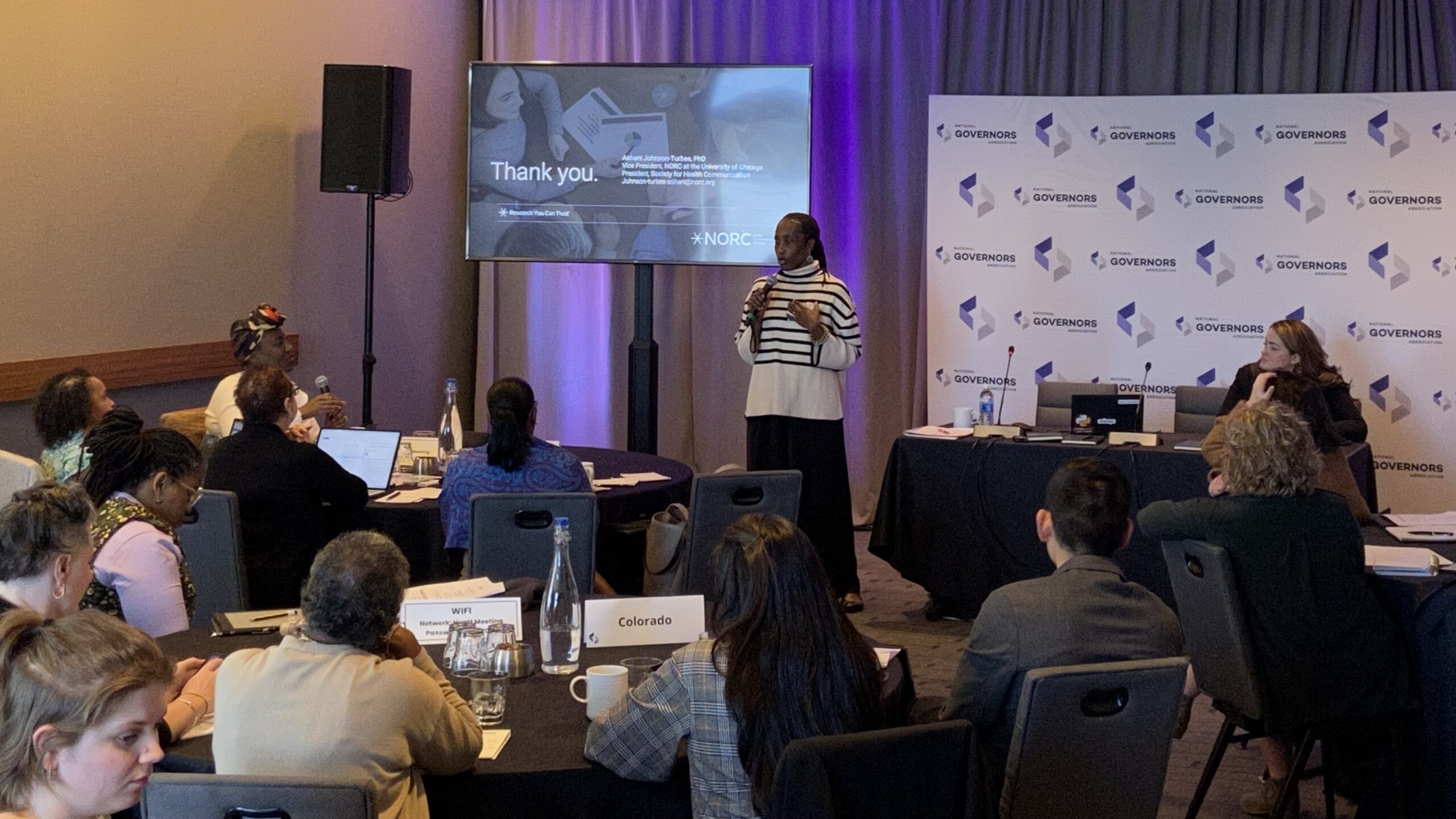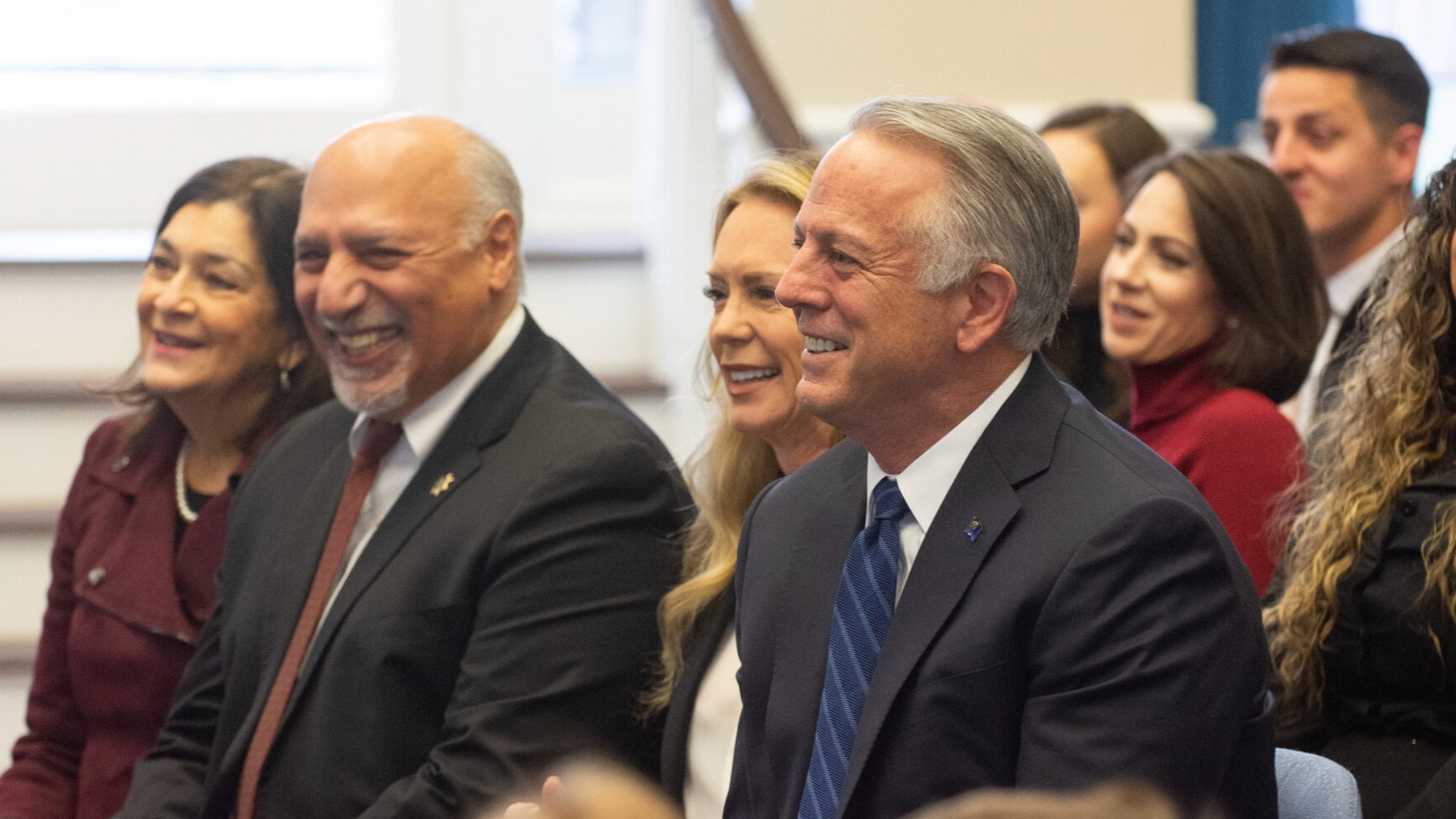Governors across the country recognize the importance of outdoor recreation and are uniquely positioned to support its growth through state policies, programs and incentives.
By Cara Dougherty and Bevin Buchheister
In 2019, the National Governors Association Center for Best Practices (NGA Center) formed the Outdoor Recreation Learning Network (ORLN) in partnership with state and territory outdoor recreation directors.
This network convenes Governors’ outdoor recreation office directors and advisors to explore strategies that leverage their unique natural, cultural and historical resources and exchange information on advancing outdoor recreation to promote economic, social and environmental benefits. The ORLN also provides insights into federal developments and related impacts, opportunities and resources for states and territories.
In May, NGA’s Annual ORLN Policy Institute took place in Little Rock, Arkansas, and featured remarks from Stacy Hurst, Secretary of the Arkansas Department of Parks, Heritage and Tourism, and a special signing of the Confluence Accords that demonstrate a state’s commitment to conservation and stewardship, education and workforce training, economic development, and public health and wellness through outdoor recreation. Thanks to the generous support from ORLN sponsors, Outdoor Industry Association (OIA), REI Foundation, Outdoor Recreation Roundtable and the VF Foundation, the Annual Policy Institute was a productive and meaningful convening for ORLN members.
On day one of the Policy Institute, the network convened at Pinnacle Mountain State Park to discuss Arkansas’s partnership with the U.S. Forest Service and how to prepare communities for long-term success and equal opportunities when developing outdoor recreation economies. The network partook in several outdoor recreation activities native to Arkansas’s beautiful outdoors. Members hiked sections of the 373-acre Rattlesnake Ridge Natural Area (RRNA), which protects rare plant and animal species and provides habitat for three species of state conservation concern: the southeastern bat, the western diamondback rattlesnakeand Wright’s Cliffbrake, a western desert fern. The network also experienced a kayak tour on Big Maumelle River, below Lake Maumelle, Little Rock’s primary drinking water reservoir, and a mountain bike adventure on Coachwhip and Centipede Trails, within the larger network of Monument Trails, with scenic views over the Arkansas River Valley.
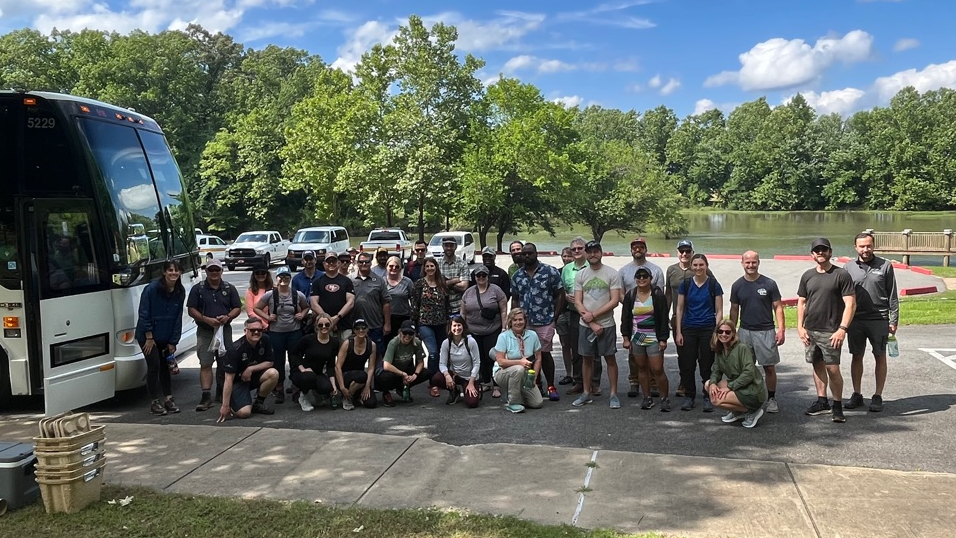
Thanks to the strength of public/private/non-profit partnerships, a shared vision has brought Monument Trails to life in four Arkansas State Parks. Monument Trails are world-class destinations showcasing the natural scenic beauty of the State Parks they are within while exemplifying the highest quality in trail craftsmanship, innovation, beauty and sustainability. They are the result of the generosity of the Walton Family Foundation in collaboration with the Arkansas Parks and Recreation Foundation and Arkansas State Parks. The ORLN experienced first-hand the enduring, memorable opportunities that the multi-use trails offer to trail riders, runners and hikers of all skill levels.
On day two, the Policy Institute resumed at the Clinton Presidential Center in Little Rock where the National Park Service discussed their new Office of Outdoor Recreation. Network discussions focused on state actions to promote equity, state funding sources and understanding as well as efforts to improve economic and participation data.
Later, Secretary Hurst joined ORLN state members and funders. Secretary Hurst was appointed Director of the Department of Arkansas Heritage by NGA Chairman Arkansas Governor Asa Hutchinson in January 2015. She is responsible for the work of eight separate agencies that identify, protect and promote the state’s natural, historic and cultural resources. She shared with ORLN members the importance of growing the outdoor recreation economy and promoting awareness of the recreational experiences that Arkansas and other states have to offer.
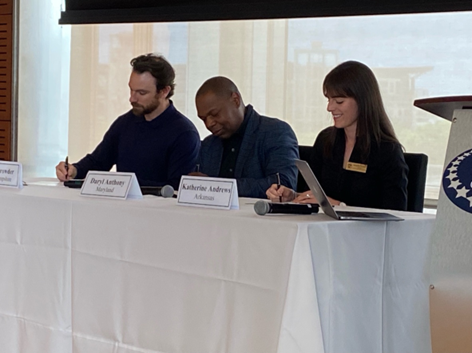
In conclusion of the two-day event, there was a special signing of the Confluence Accords. With the addition of New Hampshire, Maryland and Arkansas, 16 states have now signed the Confluence Accords.
Launched in 2018 by a bipartisan group of eight trailblazing states, the Confluence of States was established in recognition of the impact and importance of the outdoor recreation industry and to provide a central point of contact for the diverse businesses, communities and individual constituents that rely on the continued health of our nation’s natural spaces. The Confluence of States is a bipartisan movement that promotes and advances four pillars and 12 common principles of the Outdoor Recreation Industry Confluence Accords which represent a best practice for all states and territories to consider adopting.
Please visit NGA’s Outdoor Recreation Learning Network (ORLN) webpage to find the latest publications, events, opportunities and resources on all things outdoors. If your state or territory is interested in joining NGA’s ORLN, please contact Bevin Buchheister (bbuchheister@nga.org) or Cara Dougherty (cdougherty@nga.org).






